The war with Ukraine is here to stay – and Russians better get used to it. That was Vladimir Putin’s message to the Federal Assembly when he addressed them this morning for the first time in nearly two years. Kremlin watchers looking for obvious signs of where Putin wanted to take his ‘special military operation’ in Ukraine may have been disappointed. But Russia’s president did use his speech to ratchet up tensions with the United States – by announcing that Russia is suspending its involvement in the New START nuclear arms deal with America. ‘Our relations have degraded and that’s completely and utterly the fault of the US’, he thundered.
The United States didn’t take long to hit back: ‘The announcement by Russia that it’s suspending participation is deeply unfortunate and irresponsible,’ US Secretary of State Antony Blinken said. The agreement, which was extended in 2021, is the last remaining nuclear arms deal between Moscow and Washington. It limits the number of nuclear warheads the world’s two biggest nuclear powers can deploy. That Putin is willing to use it as a bargaining chip is a worrying sign – although Putin was also notably cautious in his wording even during this sabre rattling. Putin stressed that Russia wasn’t fully abandoning the treaty quite yet. Instead, he claimed to have seen evidence that Washington is planning nuclear tests – and said that Russia would respond in kind:
‘If the US conducts tests, then so will we. Nobody should have any dangerous illusions that global strategic parity can be destroyed.’
While this announcement – the only major one of Putin’s speech – will lead the news bulletins, Putin’s main focus in his speech, aside from his attacks against the West, was closer to home. Russia, its economy and people must move to a war footing, Putin said, because the Russian army will be in Ukraine as long as it takes to chase the West from Russia’s door. ‘We are protecting our people. The West’s aim is power without borders,’ he said.
Putin cycled through his usual list of clichéd tropes about Ukraine
Putin’s speech started, as so often, with a history lesson, setting the scene for the announcements to come. Going back to 2014 and Russia’s first invasion of Ukraine, Putin accused the ‘Kyiv regime’ (code for Ukraine’s Western-allied government) and the West of plotting behind Russia’s back to place the Donbass under siege:
‘We did everything, truly everything, we could to resolve this issue peacefully.’
The Donbass, for its part, apparently ‘believed and waited for Russia to come to its aid’. In Putin’s world the aggressors, without a doubt, are Nato and America:
‘I want to repeat this, it is them who started this war. We are using every means possible to stop it.’
Putin cycled through his usual list of clichéd tropes about Ukraine, the West and its depravity: the ‘neo-Nazis’ fighting for the Kyiv regime are, he said, emulating the SS in their uniforms and regiment names. The West has lost all sense of traditional values, he told viewers. The Church of England got a special mention for considering whether to introduce gender-neutral terminology into their liturgy.
But whereas in previous speeches, Putin’s rant against the West has been the main event, here it was the warm up act. Thanking Russians for their patriotic contributions so far, Putin announced a wide-ranging package of financial measures to support anyone associated with the ‘special military operation’. A special fund for veterans and the families of those killed in Ukraine will be established to help with medical rehabilitation, education and reintegration into society. Workers in factories contributing to the war effort will have their rents lowered and subsided by the state. Anyone fighting in Ukraine would receive two weeks’ leave every six months to spend with loved ones. After a year of brutal conditions on the front and a chaotic domestic situation, these will, no doubt, be welcome measures to the members of the military and their families, if indeed they actually materialise. But they hold a deeper significance: codifying these provisions for serving personnel shows that, for the Kremlin, this war is no longer a temporary conflict.
Next, Putin moved onto the economy at large. First, of course, came the usual jab at the West and sanctions: ‘those who have implemented sanctions are punishing only themselves’ with job losses and crumbling industries as a result. But in Russia, according to Putin, the picture is far rosier.
Putin saved his final sabre-rattling for the West and Nato
‘Our economy turned out to be stronger than Western sanctions,’ Putin gloated. A stimulus package worth a trillion roubles (approximately £11 billion) ‘stabilised the economy’ last year, according to the president, who went on to say that Russian farmers collected the largest grain harvest on record last year. How much of that was due to grain stolen and transported out of Ukraine last summer, Putin didn’t say.
Putin’s good news for Russians didn’t end there: new roads and schools will be built, he said. Transport and gas supplies will be updated across the country. He wants Russian businessmen to invest. How they do that, though, he doesn’t much care: the Russian criminal code on economic crimes should be reformed and a number of offences decriminalised. ‘We shouldn’t allow excess freedom, but there’s no need to go too fair either.’ A free pass then for corruption, fraud and embezzlement to further embed itself in Russia.
His contempt for the oligarchs who before last year freely splashed the cash across the West and now found themselves under sanctions was clear. In an extraordinary dig at them, he proclaimed: ‘No ordinary citizens felt sorry for those who lost their foreign assets and invested in yachts and palaces. You’ll get sick of eating dust running around western courts [trying to get sanctions overturned]’. ‘Titles and peerages’, Putin said, won’t help.
Putin ended his speech by saying that the war in Ukraine won’t end any time soon – but only because America and the West won’t allow it. He may not have announced another ratcheting up in the conflict, but introducing permanent economic and social measures signal that Putin is practising what he preaches – and won’t be withdrawing troops from Ukraine.
Putin’s policies are designed to rally the Russian nation and buy their compliance for a little while longer. As his audience stood for a morose rendition of the national anthem nearly two hours after Putin started speaking, the lukewarm reaction suggested that not everyone is convinced.
Got something to add? Join the discussion and comment below.
Get 10 issues for just $10
Subscribe to The Spectator Australia today for the next 10 magazine issues, plus full online access, for just $10.

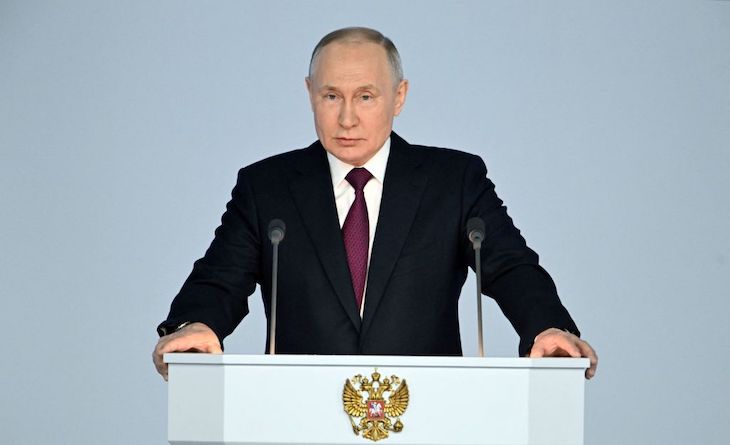
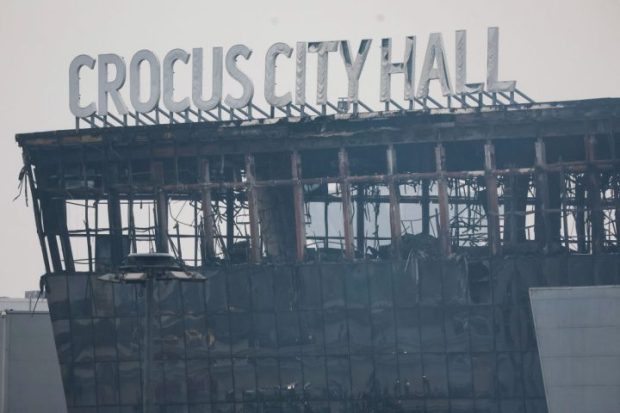
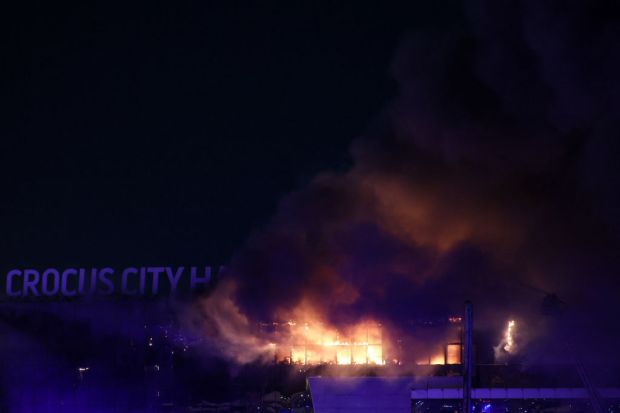
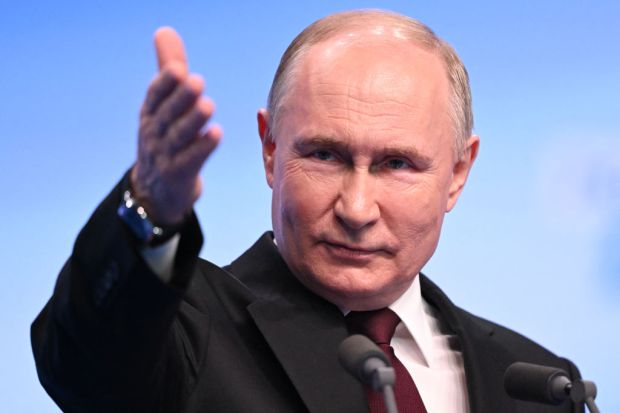
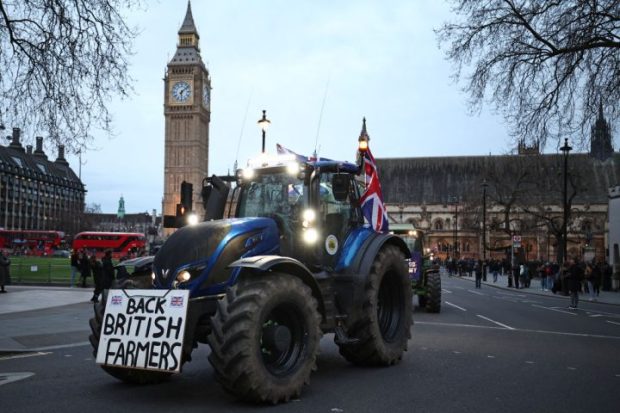

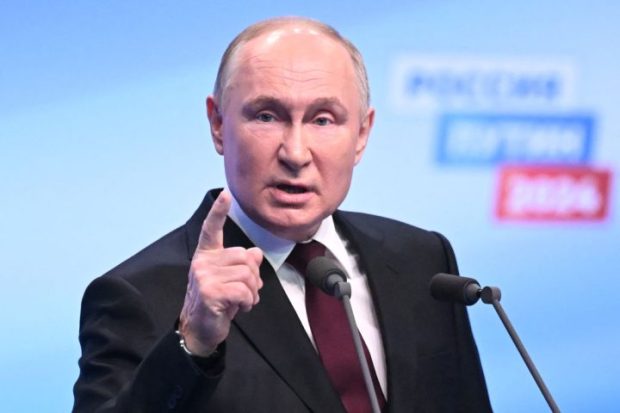












Comments
Don't miss out
Join the conversation with other Spectator Australia readers. Subscribe to leave a comment.
SUBSCRIBEAlready a subscriber? Log in